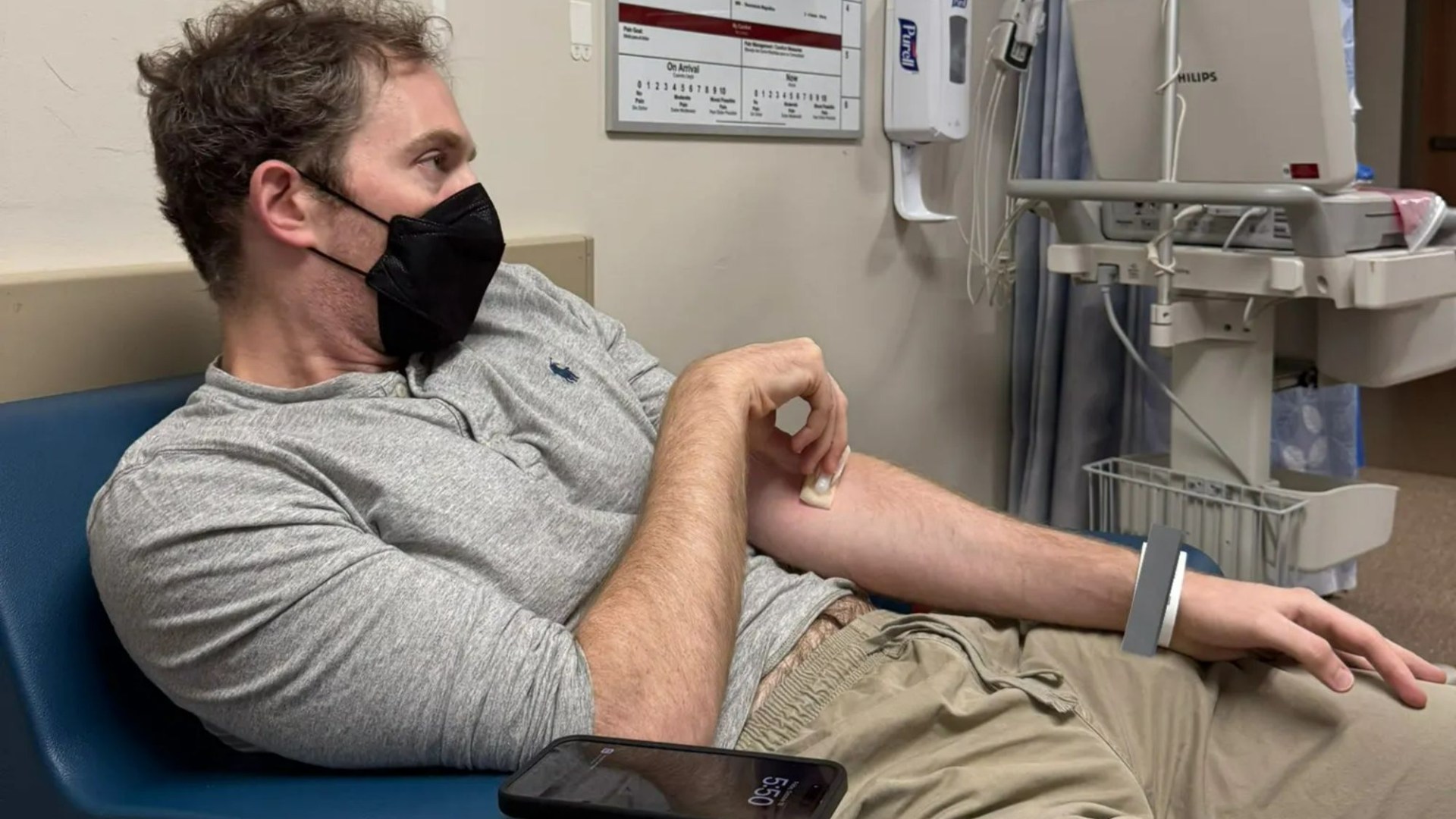A MAN claims his member was infected with drug resistant E.coli – after using a bidet.
Initially thinking he had a cold or “man flu”, business owner Molson Hart said the superbug left him doubled over in pain and “peeing blood”.
1
The dad took to X – formerly Twitter – to described his symptoms and resulting trip to the ER in rather vivid detail.
He claimed water had splashed onto his penis while he was using a bidet – a basin or toilet attachment that cleans your nether regions with a jet of water – causing the bacteria to enter his urethra.
But doctors and other social media users have cast doubt on whether it was even physically possible.
E.coli is a group of bacteria known for causing nasty gut infections.
But they can also be responsible for urinary tract infections (UTIs).
Since being posted on October 20, Molson’s post has garnered over 36 million views and thousands of comments and likes.
Molson, who owns an educational toy company, said he’d started feeling unwell on Monday, October 14.
As everyone is his family had a cold, the dad assumed this was “no big deal”.
By the next day he was wondering: “Man, why do I get so sick when everyone else is fine? Man flu, I guess.”
By Wednesday, Molson was feeling pretty rotten and noticed an unpleasant burning feeling when he was peeing.
Thursday saw Molson “doubled over in pain after peeing” and grappling a raging fever.
His wife convinced him to visit a doctor, where he was diagnosed with a UTI after urine tests.
Molson was prescribed antibiotics and started taking them.
But things took dramatic turn when, the following day, Molson passed blood clots while peeing.
Recalling his thoughts at the time, he wrote: “Ohhhh that really hurts. Is that a booger? Oh no it’s coagulated blood.”
Molson rushed to the ER, where he was told that the clots were probably caused by the UTI and “not something worse because [his] kidneys don’t hurt”.
“They prescribe backup antibiotics in case my UTI is resistant to what I’m on, but it’s unlikely,” he wrote.
To the business owner’s surprise, he received a call from the physician’s associate who saw to him on the Thursday.
What is a UTI?
Urinary tract infections (UTIs) are usually caused by E.coli bacteria – found in poo – entering the urinary tract.
The bacteria enter through the tube that carries pee out of the body (urethra).
Women are more likely than men to pick up UTIs as they have a shorter urethra than men.
This means bacteria are more likely to reach the bladder or kidneys and cause an infection.
According to the NHS, things that increase the risk of bacteria getting into the bladder include:
- Having sex
- Pregnancy
- Conditions that block the urinary tract – such as kidney stones
- conditions that make it difficult to fully empty the bladder – such as an enlarged prostate in men and constipation in children
- Urinary catheters (a tube in your bladder used to drain urine)
- Having a weakened immune system – for example, people with diabetes or people having chemotherapy
- Not drinking enough fluids
- Not keeping the genital area clean and dry
Check if it’s a UTI
Symptoms of a urinary tract infection (UTI) may include:
- Pain or a burning sensation when peeing (dysuria)
- Needing to pee more often than usual
- Needing to pee more often than usual during the night (nocturia)
- Needing to pee suddenly or more urgently than usual
- Pee that looks cloudy
- Blood in your pee
- Lower tummy pain or pain in your back, just under the ribs
- A high temperature, or feeling hot and shivery
- A very low temperature below 36C
Your pee may also be dark or smell. If this is your only symptom, it might be because you’ve not been drinking enough water.
What to do if you think you have a UTI
If you think you have UTI symptoms, you should speak to your GP to discuss treatment options.
Most people will need antibiotics.
Some people may be prescribed a ‘delayed antibiotic’, meaning they’ll be asked only to use it if their symptoms don’t go away after a certain amount of time.
If you keep getting UTIs, your GP might recommend you have a low dose of antibiotics over a long period of time or refer you to a specialist for more tests and treatments.
For women who have gone through menopause, there is evidence that vaginal oestrogen creams can reduce UTI symptoms.
Source: NHS
He claims he was told: “You have E. coli that is resistant to the antibiotics you’re on.”
Molson said: “That explains why I ended up at ER. [The] infection was not being affected by drugs.”
This left Molson wondering “how the **** did I get E.coli?”
He theorised that using a bidet many have given him the UTI.
This is how he put it: “When you use a bidet it shoots water at your butthole and E. coli is in healthy people.
“Well I shot water into my butt which then ended up getting shot into my penis. That’s the best explanation I can come up with!”
But commenters were quick to cast doubt on this theory.
One said: “I don’t get it. Doesn’t a bidet shoot clean water?
“Are you saying the splash into the bowl gave you E. Coli?”
Urologists commenting on the post also questioned whether this was possible.
One, called Dario, highlighted how E.coli was one of the most common causes of UTIs in general, and it could have multiple causes beyond Molson’s alleged bidet mishap.
He wrote: “E.coli is one of the most common UTI pathogens and in males, it can occur from urinary obstruction, residual urine and foreign bodies in the urinary tract (like stones).
“You didn’t get it from a bidet.
“The fact that yours was resistant to an antibiotic is concerning, as is your presentation with hematuria.”
Molson thanked him for his comment and promised to see a urologist after finishing his course of antibiotics.
Other commenters, however, seemed to assume that Molson was coming up with an elaborate excuse to explain how he got the antibiotic resistant UTI.
According to Johns Hopkins Medicine, most UTIs are in fact caused by E. coli bacteria, which normally live in the colon.
In most cases, you’ll be given painkillers and a course of antibiotics to clear a UTI up.
There are things you can do yourself too.
The NHS recommends taking paracetamol to reduce pain and high temperature, abstaining from sex, resting and drinking plenty of fluids.




